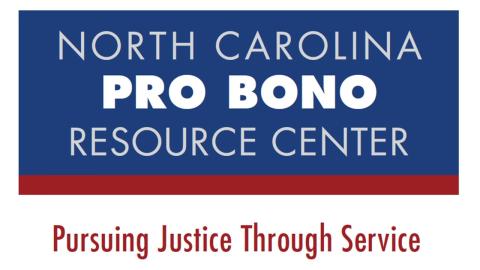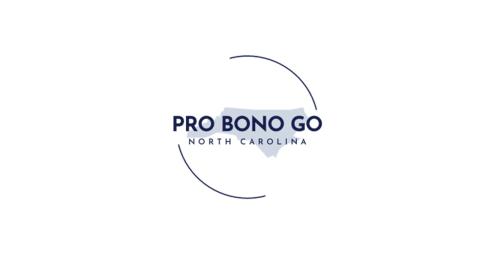North Carolina Equal Access to Justice Commission
As our Supreme Court commemorates its 200th anniversary, it is a wonderful opportunity to think about how far our courts have come in our effort to be transparent, fair, and accessible to every North Carolinian. As we acknowledge that progress, we must continue to remove those still-existing barriers that make it difficult, or even impossible, for our friends and neighbors to access our state courts.
About
In November 2005, Chief Justice I. Beverly Lake, by order of the Supreme Court of North Carolina, established the North Carolina Equal Access to Justice Commission, making North Carolina the 19th state to establish such an entity.
A primary function of the Commission is to convene stakeholders to increase access to justice. Chaired by Jeffery K. Carpenter, Associate Judge of the North Carolina Court of Appeals, the Commission’s 13 members include representatives from: the judicial, legislative, and executive branches; North Carolina State Bar and voluntary legal associations; legal aid organizations; law schools; and the philanthropic and business communities.
In addition to its role as a convener, the Commission works on a variety of strategies to increase access to justice in North Carolina: the development of materials and resources to support North Carolinians with civil legal needs who do not have access to attorneys in navigating the court system; the coordination of legislative strategy, education, and communications around funding for civil legal aid; the work of the North Carolina Pro Bono Resource Center, which seeks to increase access to justice through encouraging and facilitating pro bono legal service among North Carolina attorneys; and the assembly of collaborative, issue-based working groups to evaluate and author policy reforms to expand the legal access and remedies available to low income North Carolinians.
The Commission Does Not Make Legal Referrals Nor Provide Legal Advice.
Why We Exist
In 2018, more than 2 million North Carolinians were eligible for the services of legal aid providers (i.e. with income at or below 125% of the Federal Poverty Level). Within this low-income population, 71% of families will experience at least one civil legal problem in a given year. Nevertheless, a staggering 86% of these legal needs will go unmet because of limited resources for civil legal aid providers. There is only one legal aid attorney for every 8,000 North Carolinians eligible for legal services, compared to one private lawyer for every 367 North Carolina residents.
Civil legal problems impact the most basic human needs: housing, health care, safety, economic stability, and family structure, among others. Legal aid providers help meet these fundamental needs through providing expert representation in the areas of domestic violence protection, divorce, child custody, housing, consumer protection, employment, veterans’ benefits, and health.
How Can You Help?
Donate Money
Please consider a financial contribution to one of North Carolina’s legal aid providers. A list of providers can be found here.
Volunteer
The North Carolina Rules of Professional Conduct Rule 6.1 encourages attorneys to provide at least fifty hours of pro bono legal services each year, without fee or expectation of fee. As more than half of those who ask for civil legal assistance are turned away each year because of lack of capacity, attorney volunteers are crucial to ensure access to justice for all in our state, regardless of ability to pay. If you are an attorney and would like to volunteer, please visit ncprobono.org to view pro bono opportunities.
Staff and Members
Equal Access to Justice Commission Staff
Meet the Equal Access to Justice Commission team.
Equal Access to Justice Commission Members
See the members of the Equal Access to Justice Commission.
Additional Resources
North Carolina Pro Bono Resource Center
To increase pro bono participation statewide.
About Civil Legal Aid
Information about civil legal service providers in North Carolina.
North Carolina Faith and Justice Alliance
A coalition of faith-based groups and legal practitioners formed to address unmet legal needs of low-income North Carolinians.
Latest News

New Legal Hand Call-In Center Launches to Expand Access to Legal Support Across North Carolina

N.C. Pro Bono Resource Center Announces 2023 Pro Bono Honor Society Inductees

Pro Bono Go: North Carolina's New One-Stop Shop for Pro Bono Opportunities
Contact
Telephone(919) 890-1090Mailing AddressNorth Carolina Equal Access to Justice Commission
PO Box 2448
Raleigh, NC 27602
EmailJennifer M. Lechner
Executive Director, North Carolina Equal Access to Justice Commission
[email protected]
Sylvia K. Novinsky
Director, North Carolina Pro Bono Resource Center
[email protected]